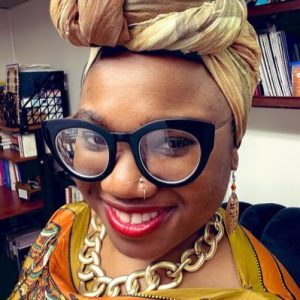Takeaway
Self-care requires the courage to say “no” to things that do not reinforce your self-worth, priorities, and purpose. This will allow you to most effectively serve your patients.

Lifelong Learning in Clinical Excellence | June 2, 2021 | 4 min read
By Ijeoma Nnodim Opara, MD, Wayne State University
“No.” A gloriously simple word that packs all the power I need to get my life in order.
“No.” It details my priorities, boundaries, and health.
As I stared at the umpteenth email request to serve on the umpteenth uncompensated Diversity Equity Inclusion committee, I knew that if I didn’t say “no,” I was going to go into crisis. It was a few months after the murder of George Floyd. The nation was seemingly newly realizing that structural racism and white supremacy existed. The country apparently needed every Black person to suddenly leap into action to provide education and absolution to white institutions and the white people within them. Immediately.
Meanwhile, I was still reeling from the trauma of the ongoing systemic dehumanization of Black bodies and the realization that my white coat won’t protect my Black skin in America. This means I can’t protect my Black husband, two Black brothers, Black father, or three Black daughters. Compounded with the impact of the COVID-19 pandemic which disproportionately affected my community and taxed me as a frontline clinician, community advocate, and medical educator, to say I was exhausted is an extreme understatement.
My passion for health equity, justice, antiracism, and decolonization was maxed out as the urgency of the times drove me to give countless talks, mentor, write, organize, and advocate widely for systemic change in and out of medicine in order to eliminate health disparities and save lives. Yet, my body, soul, and mind were severely traumatized. I gained weight, was irritable, wasn’t sleeping, and couldn’t focus. I wore my trauma on my body like a tattered shawl of angry sorrow. I could feel my telomeres shrink daily from the overwhelming stress of pretending to be ok and showing up to meet and exceed professional expectations with a smile plastered on my face while my insides were curled up like a crumpled sheet of paper.
“No.” This word saved me. Saying “no” allowed me to say “yes.” “Yes” to healing.
Saying “no” helped me focus on taking care of myself by asking for help from a counselor, my family, my colleagues, and my Black physician community. As a Black Igbo Nigerian American woman, community care is self-care. Allowing myself to be vulnerable enough to be honest and transparent with my feelings and experiences and trust my community to take care of me was one of the best decisions I ever made. This decision taught me 3 lessons:
1. I am enough.
Despite serving on the frontline through a once-in-a-century pandemic, a national reckoning with racial injustice, grief and loss, an economic recession, and personal health concerns, I still pushed myself to exceed expectations. This was the result of years of conditioning to work twice as hard to be half as recognized compounded by the dysfunctional humanity-averse culture of academic medicine that often causes a tendency toward perfectionism.
My convalescence reminded me that I am enough, just as I am. I don’t have to do anything other than what I naturally, comfortably, and easily do, in order to be validated. I don’t have to show up in any other way other than myself—all of me as a Black, loud, thick, funny, heavily accented, brilliant, creative, and empathetic woman.
You are enough.
2. I matter.
We’re trained to put our patients first. We come to believe that it’s selfish to think of ourselves or our own wellbeing. I’ve learned that if I’m not ok, I’m not able to care for others. Like the airplane safety training, I have to put the oxygen mask on myself first in order to be able to help my patients. Prioritizing my health, wellness, and joy allows me to be present to fulfill my purpose.
You matter.
3. I have a purpose.
During my period of convalescence, I was finally able to reconnect with my faith tradition and gain clarity on my “why,” my raison d’etre. I revisited my purpose statement, which is to embody joy and pursue justice for oppressed and disenfranchised BIPOC communities globally. In the words of President Barack Obama about the late congressman John Lewis, I want it to be said of me, “She was a woman of pure joy and an unbreakable commitment to justice.” I’ve learned to protect my time, energy, and space by implementing and reinforcing boundaries to ensure that my commitments reflect my purpose and priorities.
You have purpose.
It’s not easy to say “no.” But, it became critical when to say otherwise threatened my health and wellness. Over time, it’s gotten easier because my community reminds me that I am enough, I matter, and I have purpose. This translates to better health, richer relationships, restful sleep, and pure joy.
This piece expresses the views solely of the author. It does not represent the views of any organization, including Johns Hopkins Medicine.

